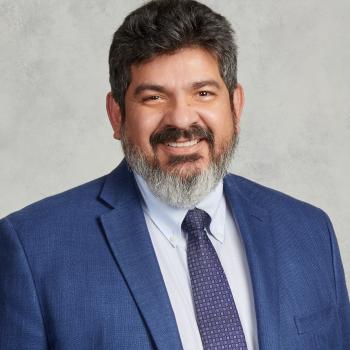
A nationally renowned sleep expert recently took part in a virtual session with Punahou parents as part of a Team Up initiative to promote social, emotional and ethical learning. Dr. Rafael Pelayo, a clinical professor at Stanford University School of Medicine’s Division of Sleep Medicine, told parents during the January Webex session that about 75% of U.S. teenagers don’t get enough sleep, which can lead to higher levels of anxiety, anger, fatigue and risk-taking behavior.
Getting adequate sleep is essential for learning, Pelayo told parents, and not getting enough is comparable to leaving your home with a phone that’s half-charged. “The phone may work, but in the back of your mind, you know you need a charger. You know it’s not at its full potential,” said Pelayo, author of the book, “How to Sleep: The New Science-Based Solutions for Sleeping Through the Night.” “The same thing happens with sleep. Your kids have learned to get by with less sleep, but they’re not at their full potential.”
A lack of sleep results in being grumpy, irritable and inattentive, and sleep disorders often mimic attention and learning disorders. “Sleep is involved in memory processing – it’s how we learn and absorb new information,” Pelayo said. “It’s the most natural and powerful form of self-care that we have. It’s essential.”
The key to establishing good sleep habits is to not just focus on the quantity, but also the quality. It should be refreshing, and you should never wake up feeling tired.
There are two different kinds of sleep – REM (rapid eye movement) sleep, which is associated with dreaming, and non-REM sleep, which is the bulk of our sleep. We start off sleeping in a kind of a light sleep and then we go into a deeper level of sleep. Dreaming dominates the last third of the night. When people don’t get enough sleep, they’re cutting off the ability to dream. “You need kids to get more sleep if you really want them to get the full benefits of REM and dreaming,” Pelayo said.
Snoring also indicates sleeping problems. “If a kid is snoring, they’re restless in their sleep,” he added. “It means they have poor quality sleep, and you should find out what’s happening.”
As part of his own self-care to help him sleep, Pelayo said he aims for an average of seven and a half hours of sleep. If he doesn’t have at least six hours of sleep, he won’t see patients. If he’s having trouble sleeping, he tries breathing exercises and meditation.
Tips to Encourage Healthy Sleep Habits
- Model good sleep behavior for your kids.
- Avoid being in the bedroom except for sleeping, as much as possible.
- Instead of focusing on falling asleep, focus on waking up; locking in a wake-up time is key.
- Teach young children that having the lights off is safe and not scary.
During a recent Team Up virtual session with Punahou parents, he shares empowering strategies so parents can make educated decisions concerning sleep and well-being for their families.
